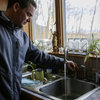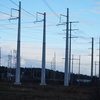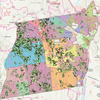State offers rebates for purchase of new EVS and for chargers
Thirty-million dollars is now available for consumers to lease or purchase new electric vehicles in New York through the state’s Drive Clean Rebate program, which provides point-of-sale rebates for more than 60 new EVs.
In addition, incentives for EV chargers through the Charge Ready NY 2.0 program have been updated to expand consumer access.
The Drive Clean Rebate Program, administered by the New York State Energy Research and Development Authority, offers a point-of-sale rebate up to $2,000 off the manufacturer’s suggested retail price of an EV at participating car dealerships in New York state.
The rebate is available in all 62 counties, with higher rebates available for longer range, all-electric vehicles. The purchaser of a car with a range greater than 200 miles can get a $2,000 rebate; for a range from 40 to 199 miles, a $1,000 rebate; and for a range less than 40 miles, $500.
The Drive Clean Rebate program has issued over 190,000 rebates to consumers since 2017, contributing to the more than 280,000 EVs on the road statewide, according to a release from the governor’s office.
Charge Ready NY 2.0 which helps reduce equipment installation costs for Level 2 chargers — the middle of three levels — is increasing the incentive amount available to install EV chargers at multifamily buildings and workplaces, including hotels, from $2,000 to $3,000 per port. For locations in disadvantaged communities as defined by the Climate Justice Working Group, the amount has increased to $4,000 per port.
Additionally, $3 million is being dedicated to locations that hold educational “ride and drive” community events, purchase or lease EVs, or offer free charging. The program also accepts new equipment and network eligibility applications from EV charger vendors.
Last year, Charge Ready NY 2.0 supported the installation of more than 1,000 Level 2 chargers, the release said, noting there are more than 17,000 public chargers installed statewide — more public chargers than any other state except for California — and more than 4,000 semi-public charging stations at workplaces and multifamily buildings across the state.


